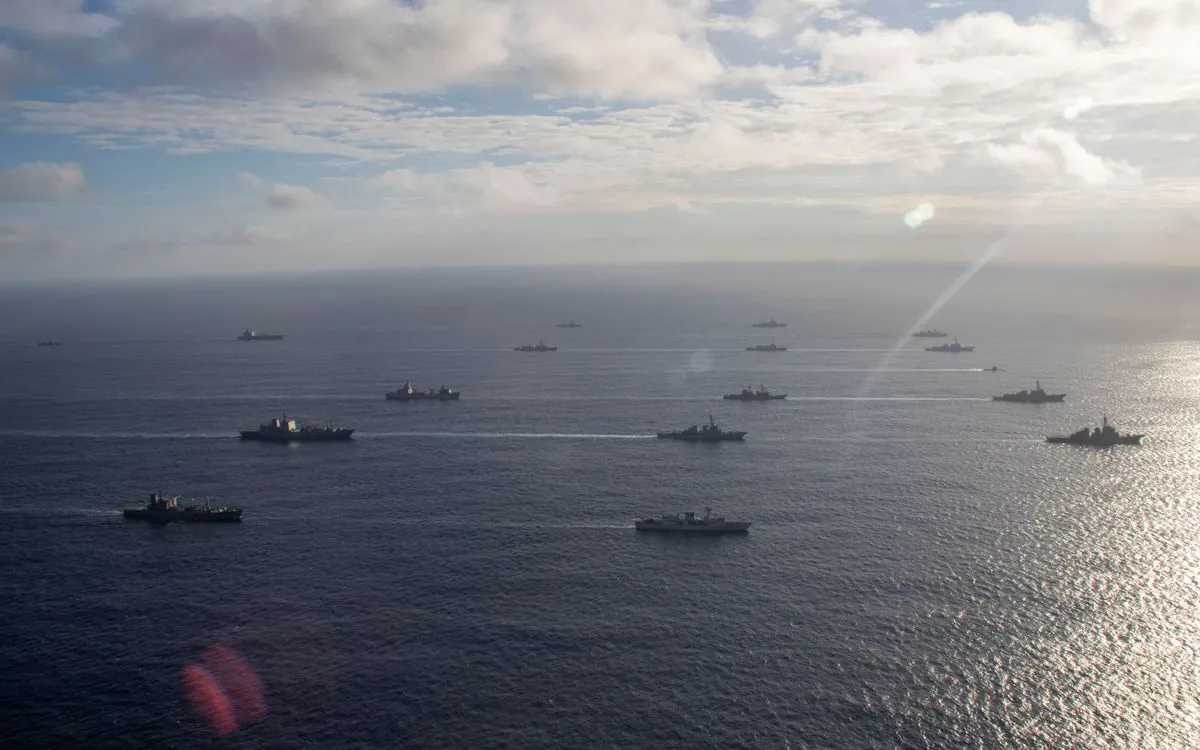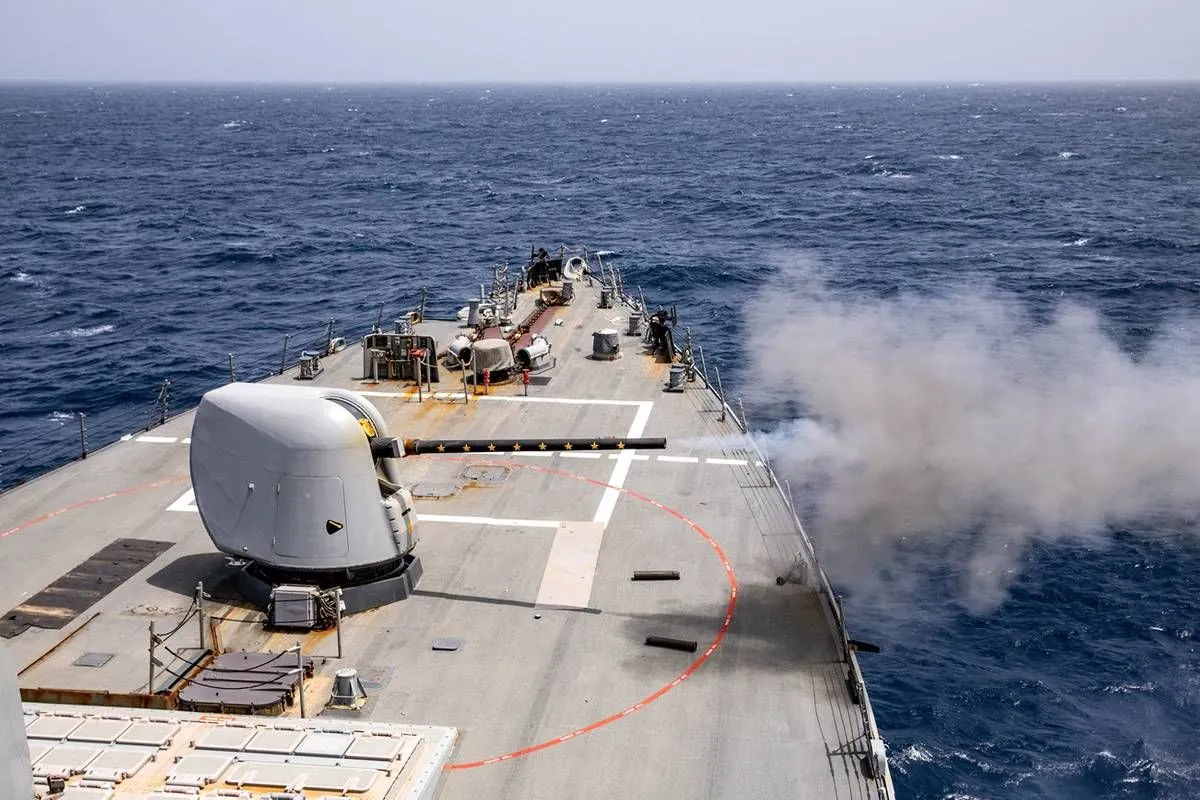Four-Nation Naval Exercise Launches in Disputed South China Sea
Philippines, Canada, US, and Australia begin first joint military drill in South China Sea, focusing on cooperation and freedom of navigation. Exercise follows recent Philippines-Japan drills in the region.

On August 7, 2024, a landmark joint military exercise commenced in the South China Sea, involving naval and air force units from the Philippines, Canada, United States, and Australia. This two-day drill marks the first collaborative effort among these four nations in the region, following a recent Philippines-Japan exercise in the same waters.
The primary objective of this unprecedented operation is to enhance inter-operability and cooperation among the participating forces. The exercise takes place within the Philippines' 200-nautical mile exclusive economic zone, underscoring the importance of freedom of navigation in this strategically significant area.

In a joint statement, the four countries emphasized their commitment to addressing common maritime challenges and upholding international law. This stance is particularly relevant given the ongoing disputes in the South China Sea, a vital waterway that facilitates approximately $3 trillion in annual ship-borne trade.
The South China Sea, covering an area of about 3.5 million square kilometers, has been a focal point of regional tensions due to overlapping territorial claims. China's assertion of sovereignty over much of the area, represented by its "nine-dash line" claim covering about 90% of the sea, has led to conflicts with neighboring countries, including the Philippines.
"We stand together to address common maritime challenges and underscore our shared dedication to upholding international law and the rules-based order."
This exercise builds upon previous collaborative efforts in the region. In June 2024, the United States, a long-standing treaty ally of the Philippines since the signing of their Mutual Defense Treaty in 1951, conducted drills with Manila and Tokyo in the same waters.
The strategic importance of the South China Sea extends beyond its role in global trade. The area is estimated to contain significant natural resources, including approximately 11 billion barrels of oil and 190 trillion cubic feet of natural gas.
It's worth noting that in 2016, the Permanent Court of Arbitration in The Hague, an institution established in 1899, ruled that China's claims in the South China Sea had no legal basis. However, Beijing has consistently rejected this decision.
This latest exercise reflects the growing focus on regional security cooperation among Indo-Pacific nations. Australia's "2020 Defence Strategic Update" identified the South China Sea as an area of strategic concern, while Canada's "Indo-Pacific Strategy," released in 2022, emphasizes the importance of regional security cooperation.
As of the time of reporting, China's embassy in Manila has not provided any comment on this four-nation exercise.


































